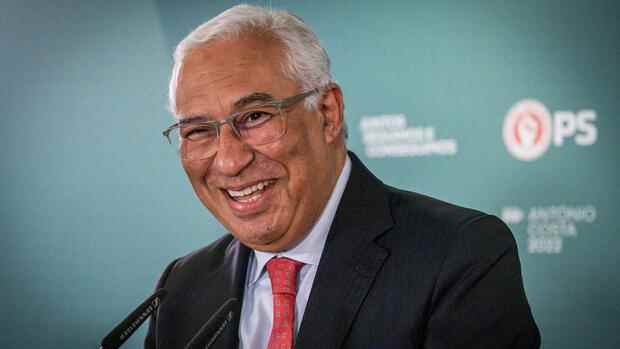Above all, the comparatively high voter turnout helped the Prime Minister to an absolute majority.
(Photo: ddp/abaca press)
It is an astounding victory for old and new Prime Minister António Costa in Portugal’s snap general elections: in times of increasing parliamentary fragmentation across Europe, the socialist secured an outright majority.
And that despite the fact that in recent years he has acted as southern Europe’s top austerity commissioner and based his policy on the premise of balanced budgets. This is anything but a matter of course in Europe – the trend is clearly going in the other direction.
In the end, his left-wing partners had had enough of his austerity measures: they refused him approval for the budget last year and made new elections necessary. The Portuguese have now punished the radical left for this. With Costa’s strong election victory, the most important goal of the new election has now been fulfilled: creating political stability.
The election result shows that elections can also be won with a rigid financial policy. Among other things, Costa lowered the income tax for low salaries. At the same time, however, the Prime Minister increased indirect taxes, for example on petrol or sugary drinks. The result: Debt and budget deficit fell – not least because the global economy also picked up.
Top jobs of the day
Find the best jobs now and
be notified by email.
In the election campaign, Costa has now promised to raise the minimum income, provide affordable housing and invest in the health system. But these measures will not suffice as a program for the next four years.
Portugal’s added value must increase
He must use an absolute majority to tackle long-term reforms that he has so far neglected. During the election campaign, the conservative leader of the opposition, Rui Rio, rightly pointed out that Eastern European states such as Lithuania and Estonia have meanwhile overtaken Portugal in terms of purchasing power-weighted per capita income. Before the pandemic, Portugal was 79 percent of the EU average – ten years earlier it was 83 percent.
The low salaries mean that well-educated Portuguese are looking for a job abroad. Among other things, Costa now has to ensure that the added value in Portugal’s economy increases and with it salaries and growth.
The moment is better than ever: In addition to his majority in Parliament, he can also dispose of 14 billion euros from the European recovery fund. It is designed precisely to initiate structural reforms after the pandemic in order to take the economy to a new level. Costa now has to deliver.
More: New elections in Portugal: Why budget discipline is already the election winner
